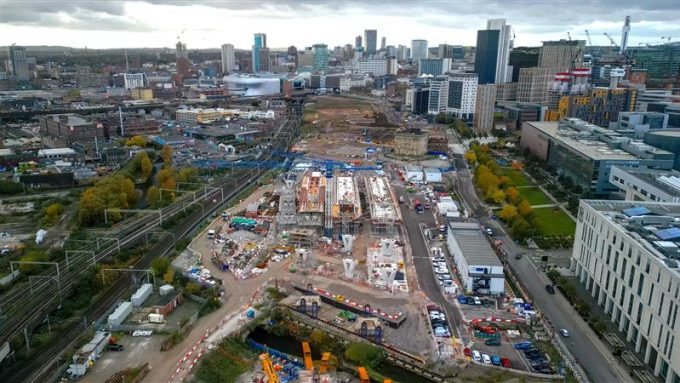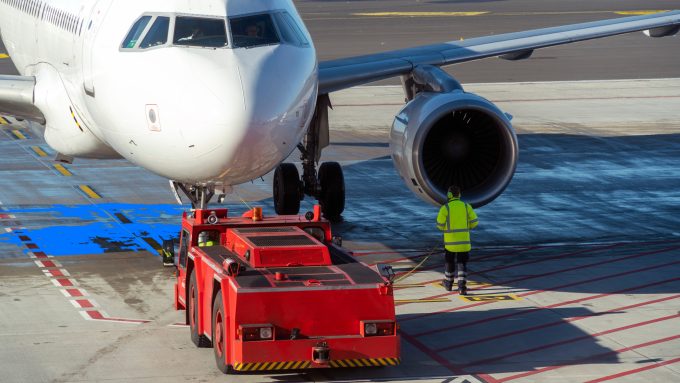
Transport accessibility tech thrives following Catapult testbeds

Air passengers requiring support at Glasgow Airport can now make use of a digital assistant developed by Hello Lamp Post, an SME supported by Connected Places Catapult.
The AI-enabled tool has been introduced at the airport to improve navigation through the terminal for all passengers, which has been branded ‘Hello Glasgow’ around the site. Location specific signage with QR codes placed around the airport can be scanned to share real-time flight information, request passenger assistance and support with airport navigation.
Earlier this year, the technology was tested at Glasgow Airport as part of the Connected Airport Living Lab accessibility trial, focused on passengers with accessibility needs.
“Hello Lamp Post has two benefits: it provides instant support for passengers in that specific location, and eases the strain on airport staff”Hello Lamp Post, Chief Executive, Tiernan Mines
“Nine million people go through Glasgow Airport every year, with around 5,000 queries coming into the team every month. But most of those questions are about where to catch a bus, where to get coffee, and where the toilets are located.
“All of those different questions are very repetitive for a human to have to handle,” he adds. “Answering many questions also risks taking attention away from someone who might be trying to get in touch to request a wheelchair, for instance.”
Trial of the system led to a 50% reduction in queries being received by customer services teams and those looking after passengers with restricted mobility at the airport; giving over 250 days a year of staff time back to other customer duties. The company also says that over 12,300 more passengers could be supported every year thanks to the service, and that it had an 86% satisfaction rate with users during the trial.
Hello Lamp Post uses AI to understand what someone interacting with the service is requesting, and respond with the most relevant and personalised information based on the user's location. If human assistance is required, the system will direct passengers to where they should go.
“Our commercial model is not about monetising the end user. Instead, the airport is our customer, which means the focus is on helping the airport provide better support to more passengers.”

The company began a decade ago as a ‘playable’ digital art installation in Bristol to improve people’s experiences of the urban realm, and was previously shortlisted for the Connected Places Catapult Station Innovation Zone competition to help rail passengers navigate Bristol Temple Meads.
“Connected Places Catapult helped to join the dots for us with clients and was instrumental in setting up user testing; getting people in need of special assistance in front of the technology.
“At Glasgow Airport, we want to support as many people as possible coming through their doors, and we'll soon be supporting more airports across the UK, and beyond including in the US. The opportunity is really exciting.”
“It is tremendous to see Hello Lamp Post launch its AI-enabled digital assistant service. This development follows a trial of the technology at Glasgow Airport as part of the Connected Airport Living Lab project, where innovative new systems were funded by the Catapult to address challenges facing the airport sector.”Connected Places Catapult’s Ecosystem Director for Air Mobility & Airports, Andrew Chadwick
Glasgow Airport’s Group Head of Operational Solutions, Jamie Loudon said: “Working with Connected Places Catapult on a trial earlier this year proved invaluable in helping us roll out this cutting-edge technology across the airport for all passengers.
“Technological advancements, particularly in artificial intelligence, are transforming how we deliver vital services. This AI-powered assistant will further enhance the customer experience, ensuring smoother and more personalised journeys for all who pass through Glasgow Airport."
Helping neurodiverse travellers in the South West
Rail stations throughout Devon and Cornwall will soon begin hosting a large trial of a new digital travel companion, to support neurodiverse passengers in need of help navigating unfamiliar environments.
The technology, called Aubin, from specialist technology firm Jnction provides turn-by-turn directions on a smartphone to users with conditions such as autism, to help make their journeys around stations less stressful.
Aubin was trialled at Bristol Temple Meads just over a year ago as part of the Station Innovation Zone testbed run by Network Rail and delivered by Connected Places Catapult. Now, an enhanced version of the system will be tested by passengers at stations throughout the South West as part of a trial hosted by Innovate UK.

“Our focus will be around Exeter St Davids, but include other stations in the local area too, some of which are not staffed,” explains Jnction’s Chief Executive, Mike Lloyd. “We have focus groups, the support of local councils and Great Western Railway and will be recruiting users to try out the system with us.”
Following this latest trial of the technology, the company aims to launch a product to market next spring.
“Our system is providing practical support to help people navigate, reduce their stress levels and have more comfortable journeys. We want to work with the rail industry to roll this out more widely across the UK.”Jnction’s Chief Executive, Mike Lloyd
The latest version of the technology includes real-time information to provide alerts to users on the whereabouts of a train before they embark on their journeys, rather than relying on timetable data.
Also in the last year, Aubin has been on show at the National Railway Museum in York as part of a rail futures exhibition. “This has flowed directly on from the work we did with the Catapult last year, and the relationships they helped us to build,” Mike says.
He adds that staff trained to help neurodiverse passengers on the new trial will be wearing a special badge with the company logo, to make members of the public feel more comfortable should they need to make an approach.
He adds that the support of Connected Places Catapult has been crucial in helping to develop his company’s system. “They were very helpful from several points of view. The funding was critical to keep the project going and allowed us to work closely with people on the ground, understand their needs and work out what we needed to do differently.
“They also helped us to build relationships with Network Rail and Great Western Railway. We now have a clear plan for what we need to do.”
“It is fantastic to see progression of the technology trialled in the Station Innovation Zone. Stations can be very complex environments to navigate, and anything that improves accessibility for passengers is important for the rail sector.”Connected Places Catapult’s Ecosystem Director for Rail and Stations, Dr Alan Peters
Read more about the Connected Airport Living Lab trial at Glasgow Airport, and listen to a podcast about the Station Innovation Zone, featuring Jnction.





